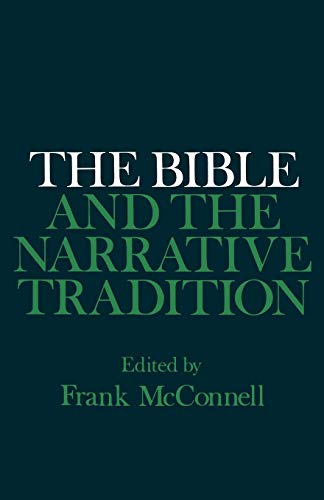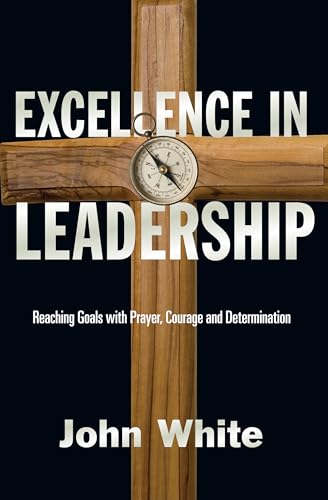The Professor of Divinity at Durham here collects six pieces of diverse origins that are held together by a cluster of common concerns, centring on the relationship between the authority of Scripture and the character of the scriptural writings as interpreted tradition. Together they may be regarded as an endeavour to reformulate an evangelical understanding of biblical authority in terms of ‘living tradition’ and a dialogue between historical exegesis and Spirit-led discernment of ‘word of God’ in the present. Part of their interest lies in the attempt to make theological bricks out of hermeneutical straw (‘I see New Testament theology as primarily a hermeneutical task’).
According to the oft-invoked distinction between deductive and inductive methods in fixing the authority of the Bible, Dunn is clearly closer to the latter, although he might well wish to pronounce a plague on both houses and claim to be pursuing some via media. For he seeks to establish a functional notion of scriptural authority, from the way Scripture is used in the Bible. This involves him not only in analysing the NT’s appeals to the OT, but also in drawing out the significance of later reinterpretation and reapplication of earlier tradition within each Testament. Thus he identifies a ‘dialogue between the historical concern of the Evangelists in preserving the tradition of Jesus and their concern also to use and so also interpret that tradition for their own times’. In this same chapter, which is for me the most attractive in the book, he also suggests that Paul, far from being uninterested in what Jesus said and did, used the tradition of Jesus in somewhat the same way, as ‘a living voice which was heard again and again speaking with ever new force and effect in a variety of fresh situations’.
The final chapter, originally published in 1982, takes its cue from the ‘canon criticism’ of Brevard Childs and others, but argues for four different ‘levels of canonical authority’—those of tradition-history, the final author or composition stage, the canon proper, and ecclesiastical tradition. The argument depends on a confusing use of ‘canon’ and its derivatives. If it is defined as ‘any formulation(s) or writing(s) which a community of faith treats as its rule of faith, as constitutive or normative for its self-understanding’, one has departed from the distinctively Christian canonical standpoint, in so far as ‘canon’ has been sundered from the context of church theology that alone gives it meaning. This becomes evident in the curious notion of an ‘ecclesiastical level’ of canonical authority, exemplified in Catholicism’s elaboration of Marian traditions beyond any explicit grounding in Scripture. This is not far from the very antithesis of the canon of Scripture! What Professor Dunn in effect does in this chapter is conscript the concept of canon into the service of the descriptive task that he pursues throughout the book—that of surveying the different ways in which the constituent traditions and components of the Bible have functioned as norms. This is very different from advancing a richer or more suggestive understanding of the Bible as itself canon in theology and church. It is not surprising that he is very taken with the idea of ‘a canon within the canon’.
The book sustains a sharp critique of the Warfield/inerrantist interpretation of biblical authority. Not everything ascribed to this position would, it seems to me, be accepted by all its exponents (e.g. ‘scripture must always say precisely the same thing in every historical context’), and for my part nothing is gained, other than a higher level of acidity, by the hoary allegations of bibliolatry and Pharisaic legalism. Dunn does not believe that Scripture teaches its own inerrancy (he examines four key texts), and also engages in some aprioristic discussion about what might or might not result from the recording, under divine inspiration, of God’s Word by human authors. What is lacking here is some theological control, and I could not help sensing the relevance of the Christological analogy.
Dunn is keen to promote internal evangelical discussion, and reprints here his reply to Roger Nicole’s criticisms of his main essay, ‘The Authority of Scripture According to Scripture’ (which earlier appeared in Churchman). If evangelicals are agreed that in the incarnation the divine Word entered as fully as possible into human life (‘even unto death’), without being subject to the sin and error that afflict all other human existences, we may have a paradigm for determining what it is proper to hold of the inspired Word of God in scriptural form. ‘Like any other book’ would be no more at risk than ‘in every respect … as we are’; one would be asking if there is a proper scriptural analogue to ‘yet without sinning’. This would in my view afford some possibility of approaching the question without theologically uncontrolled aprioristic reasoning. It would be akin to tackling the subject per notum ad ignotum or perhaps better, per creditum ad dubitatum.
Professor Dunn operates with a disjunction between the Word of God in its original context and the permanent written record of it. He allows that ‘what Scripture [when correctly understood] says, God said’, but not ‘what Scripture says, God says’. What was once rightly received as Word of God is so no longer because of historical relativism, which may be covenantal or cultural. This recognition sets Scripture free to become the medium through which the quondam Word of God may, when reappropriated and reapplied in new situations, but not necessarily in accordance with its original, author-intended meaning, give vent to a new Word of God today. There is a dialectic between historical exegesis (discovering ‘the historical word of God’) and ‘prophetic openness to the Spirit now’. Although the Spirit may speak ‘through or apart from the Bible’, the NT retains a normative authority for Christianity.
There is much here that invites critical engagement. First, the concept of ‘Word of God’ requires further investigation. According to Dunn, those large tracts of the OT often referred to as the ceremonial law ceased to be ‘the word of God’ with the coming of Christ and were ‘abandoned’ by Christianity. The category of ‘fulfilment’ is simply a form of discontinuity. It is not clear what justifies this restricted sense of’ Word of God’ (Dunn’s interest in the use of Scripture by Scripture does not encompass an analysis of this and related phrases), but it appears to be neither existentialist-Barthian nor anabaptist-(neo) pentecostal in inspiration, but a theological print-out of Dunn’s strictly traditio-historical input. It is a critical issue, for it has the effect of denying the Word-of-God character of much, if not all, of Scripture almost by definition.
Secondly, it is not clear to me that Dunn has worked out consistently the implications of his position, for on his premises none of the Bible is ‘Word of God’ today apart from some special disclosure by the Spirit, since all of the NT (even, say, Mt. 25:31–46, which has become so peculiarly the gospel of late 20th-century Christianity) suffers from historical relativism. How are we to know when Lk. 18:22 (’sell all that you have …’) becomes the Word of God for us as it did, we are told, for Francis of Assisi? Dunn seems aware of the problem, but to have no answer to it beyond an appeal to ‘the directive authority of the Spirit revealing the mind of God here and now’. This is a recipe for subjectivism on the individual level and for that essentially Roman identification of the ‘mind of the church’ with the Spirit that has made such inroads into churches of the Reformation in the latter days.
This book’s advocacy of a ‘radical’ evangelical viewpoint is undeniably challenging and stimulating. (‘Radical’ would, I think, be a truer characterization of Jesus than Dunn’s ‘liberal’. I find Jesus as much if not more ‘exclusive’ than ‘inclusive’.) Gauntlets are meant to be picked up, and this review is a brief initial response. I discern here a hermeneutical captivity of the doctrine of Scripture, symptomatic of the legal separation our generation has countenanced between critical biblical study and systematic theology.
D. F. Wright
Edinburgh







